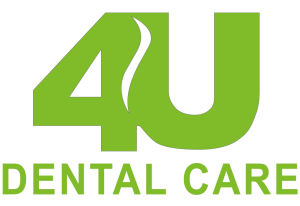Regular dental checkups are one of the most important aspects of maintaining good oral health. While most people brush and floss regularly, these habits alone are not enough to ensure that your teeth and gums are in optimal condition. In fact, neglecting to have regular dental checkups can lead to serious oral health issues that can be difficult and expensive to treat. In this article, we will discuss the importance of regular dental checkups and why you should make them a priority.
Prevention is key
Prevention is always better than treatment. This is especially true when it comes to your oral health. Regular dental checkups allow your dentist to identify potential issues before they become serious problems.
Your dentist can detect early signs of tooth decay, gum disease, and oral cancer, among other issues.
Early detection means that treatment can begin sooner, reducing the risk of more extensive, painful, and costly treatments in the future.
Remove tartar and plaque buildup
Even if you brush and floss regularly, there are areas of your mouth that are difficult to clean effectively. Over time, tartar and plaque buildup on your teeth and gums, which can lead to gum disease, tooth decay, and bad breath. During a dental checkup, your dentist will remove any buildup of tartar and plaque, helping to prevent oral health issues before they occur.
Oral cancer screening
Oral cancer is a serious condition that can be difficult to detect on your own. Regular dental checkups include an oral cancer screening, which can help detect early signs of the disease. The earlier oral cancer is detected, the more effective the treatment is likely to be. During an oral cancer screening, your dentist will examine your mouth, throat, and neck for any signs of abnormalities, such as sores, lumps, or lesions.
Monitor the condition of your teeth and gums
Regular dental checkups also allow your dentist to monitor the condition of your teeth and gums over time. By tracking changes in your oral health, your dentist can identify potential issues before they become serious problems. For example, if your gums are receding, your dentist may recommend treatment to prevent further damage and prevent tooth loss.
Identify and treat tooth decay
Tooth decay is a common oral health issue that can lead to pain, infection, and tooth loss. During a dental checkup, your dentist will examine your teeth for any signs of decay. If tooth decay is detected, your dentist can treat it before it becomes a more serious problem. In some cases, early-stage decay can be reversed with proper treatment.
Professional teeth cleaning
Regular dental checkups also include professional teeth cleaning. Even if you brush and floss regularly, there are areas of your mouth that are difficult to clean effectively. A professional teeth cleaning removes any buildup of tartar and plaque, leaving your teeth feeling clean and smooth. This can help prevent tooth decay, gum disease, and bad breath.
Save money in the long run
While regular dental checkups may seem like an expense, they can actually save you money in the long run. By identifying and treating oral health issues early, you can avoid more expensive and invasive treatments later on. For example, filling a cavity is much less expensive than treating an infected tooth that requires a root canal.
Improve your overall health
Your oral health is closely linked to your overall health. Poor oral health has been linked to a variety of health issues, including heart disease, stroke, and diabetes. Regular dental checkups can help prevent oral health issues that can lead to these more serious health problems.
In conclusion, regular dental checkups are crucial for maintaining good oral health. They allow your dentist to identify potential issues before they become serious problems, remove tartar and plaque buildup, screen for oral cancer, monitor the condition of your teeth and gums, identify and treat.
